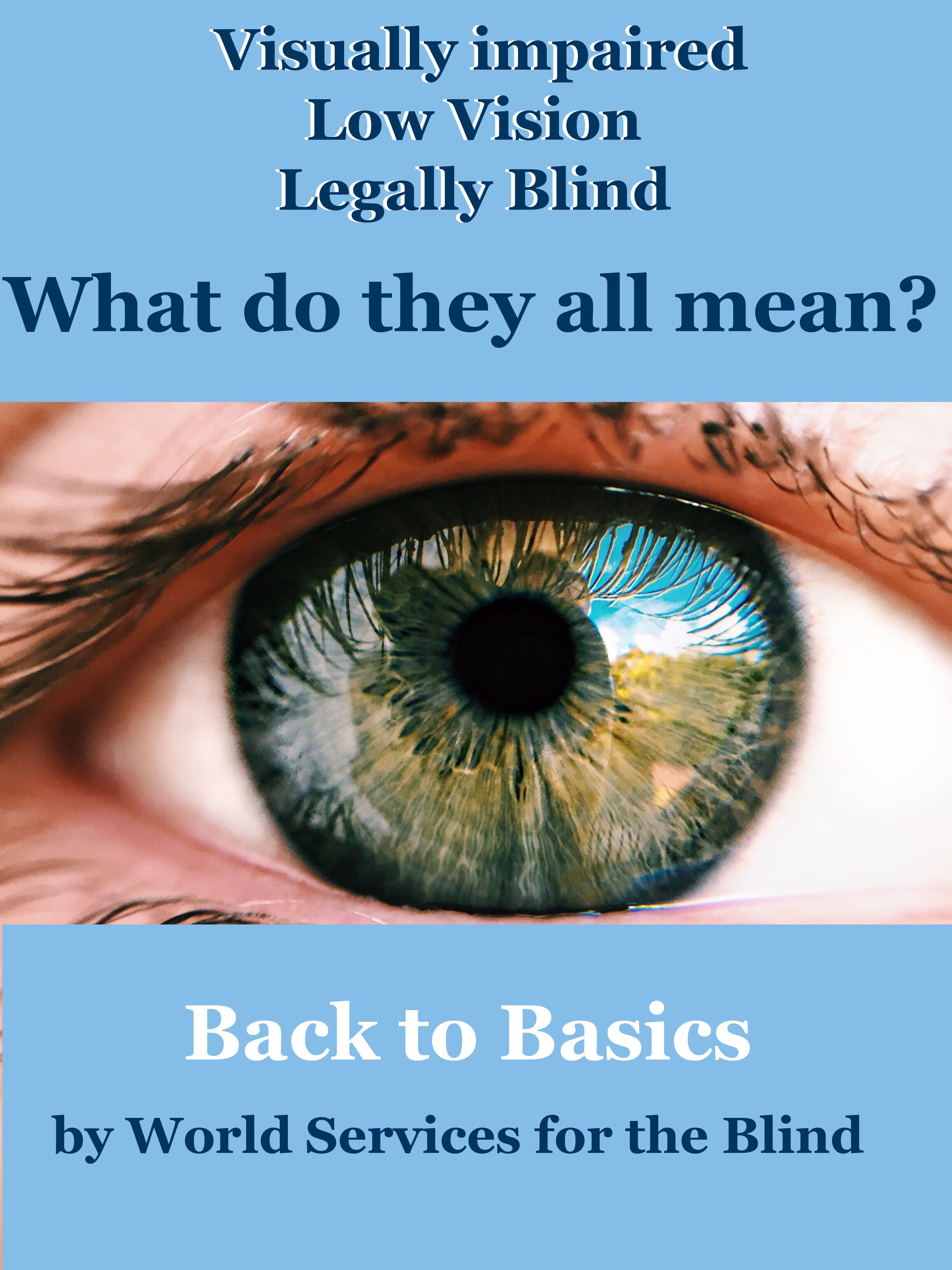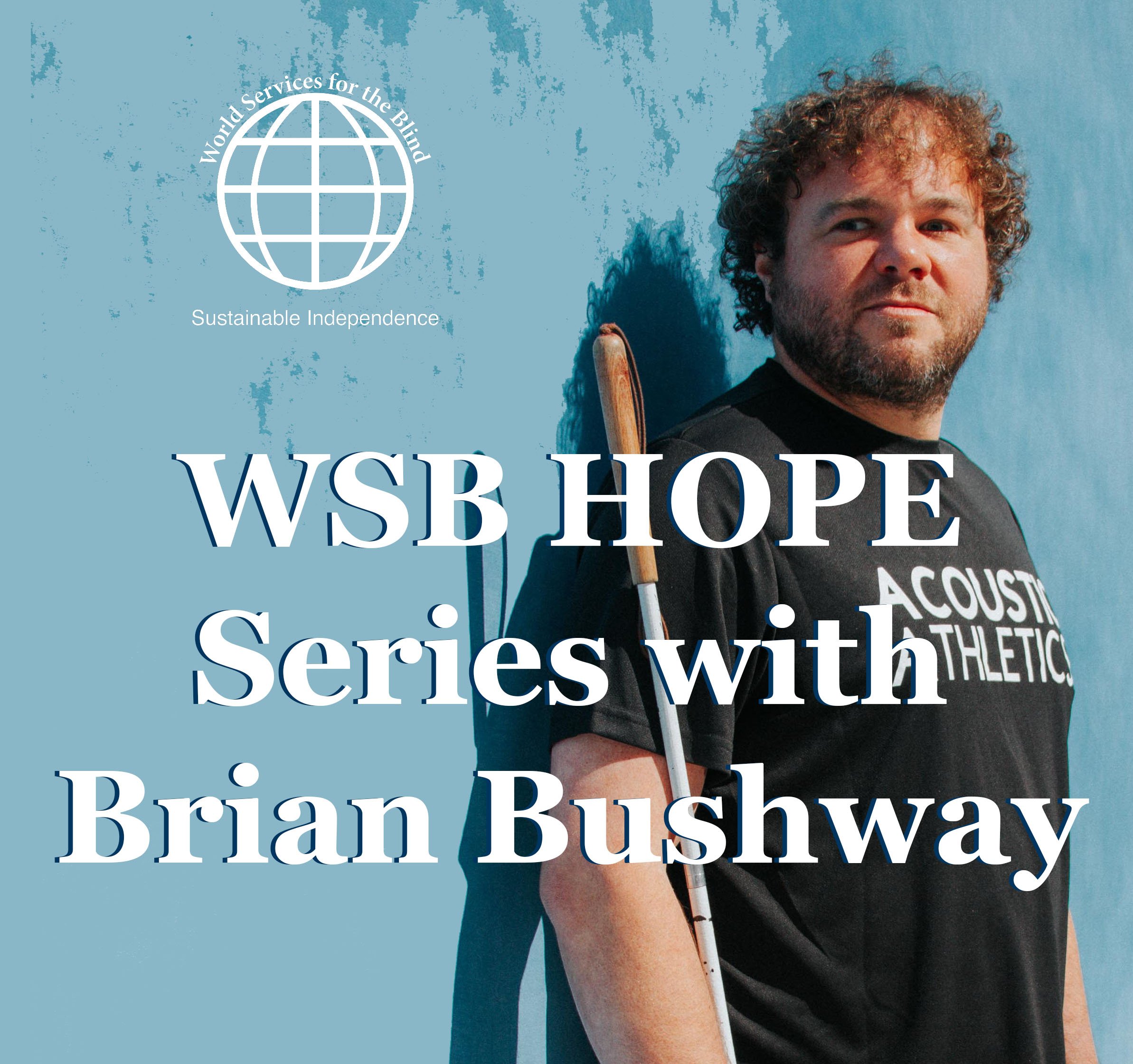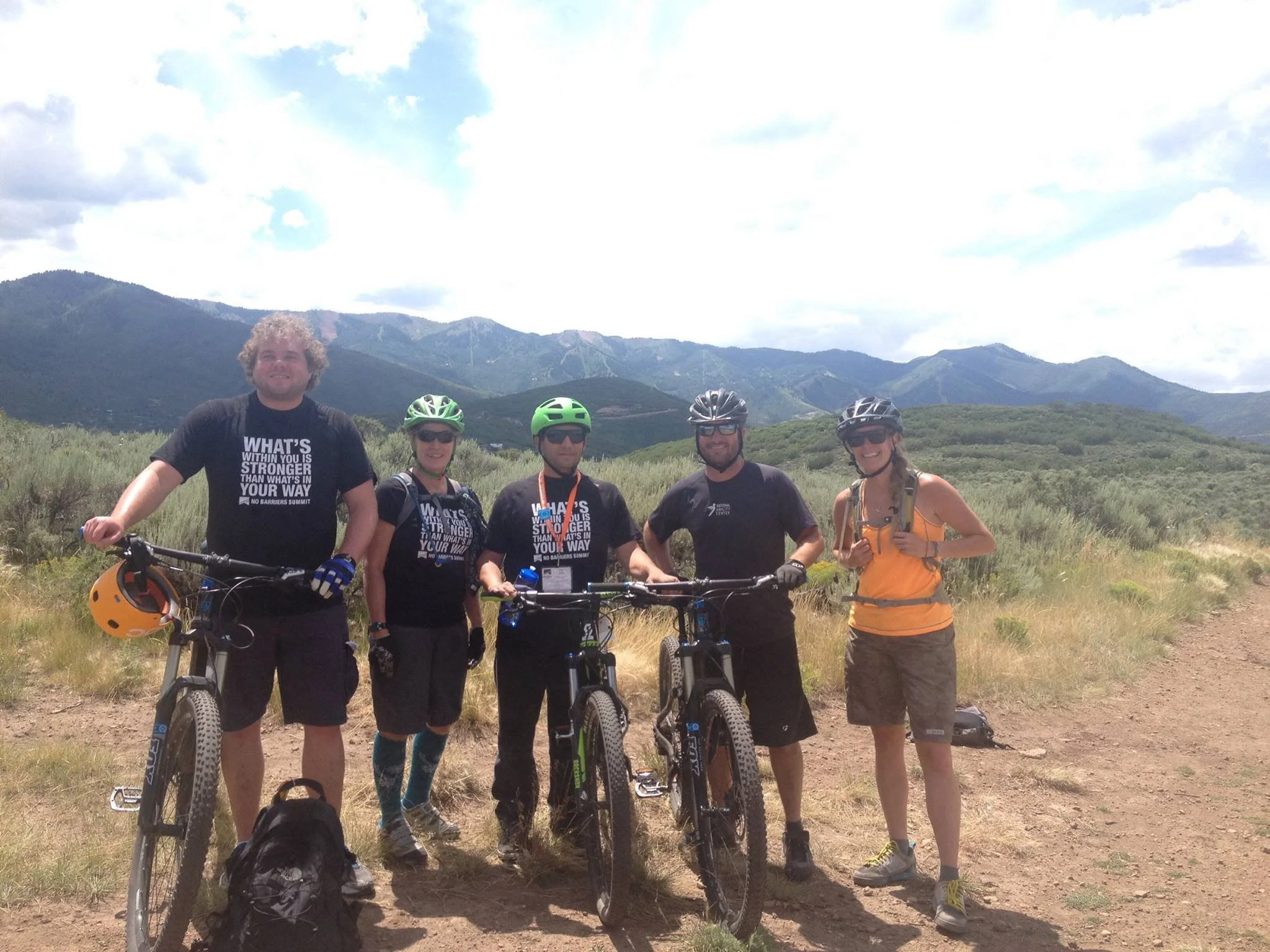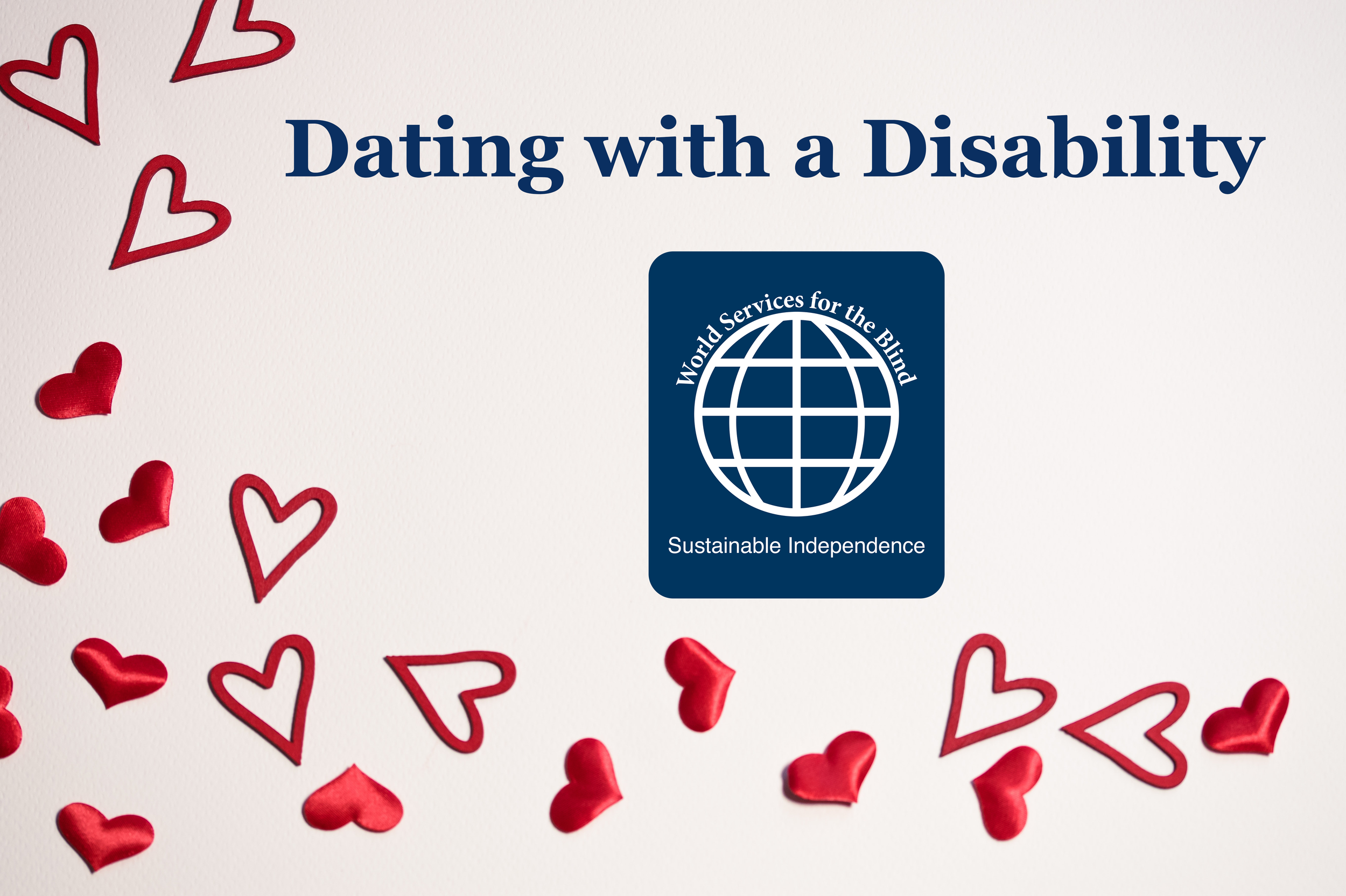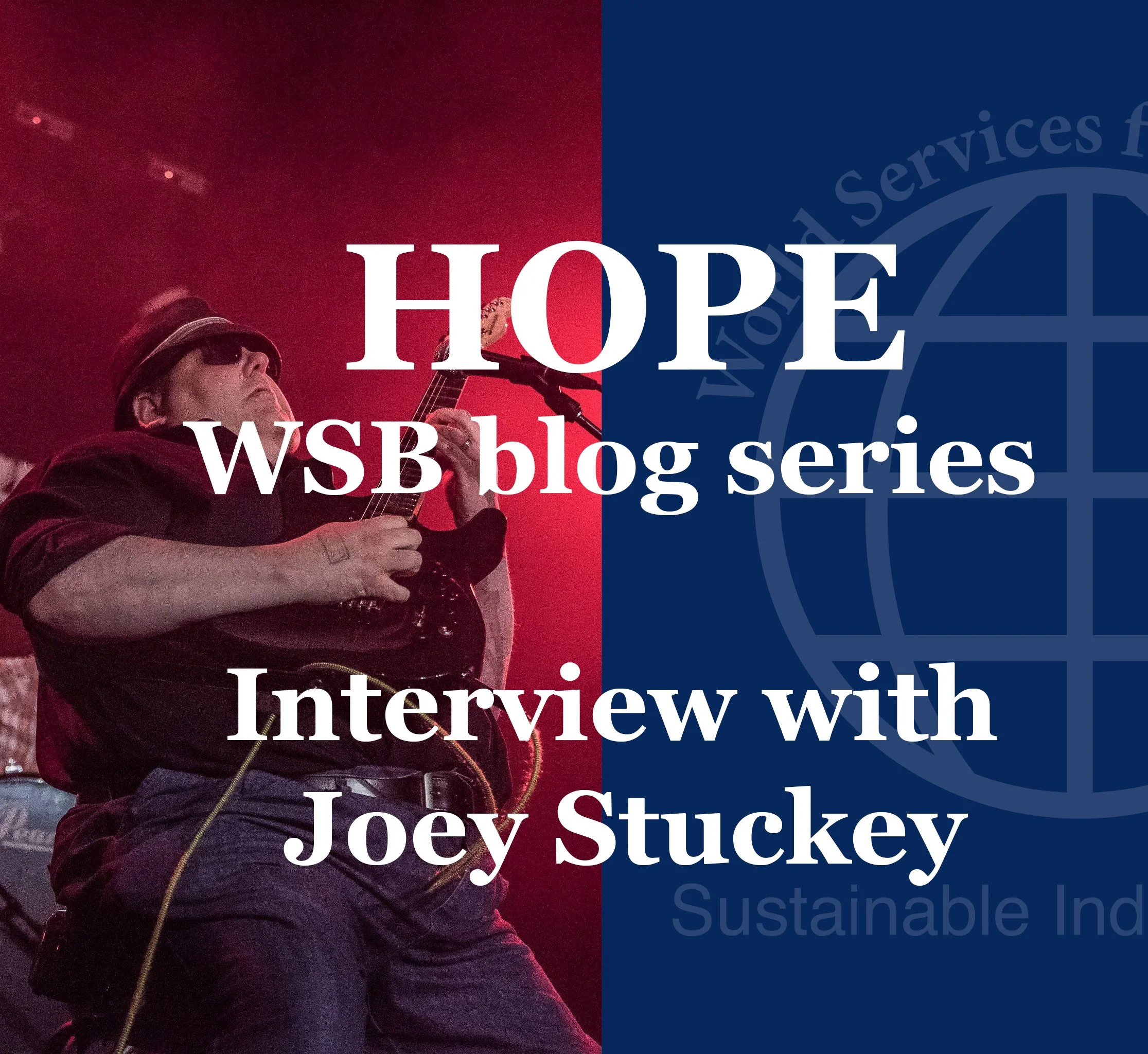Is being Visually Impaired and Legally Blind the Same Thing? | Back to Basics
/Close up image of a person’s eye with blue text above “Visually Impaired, Low Vision, Legally Blind - What do they all mean? Back to Basics by World Services for the Blind
Welcome to Back to Basics, a new series on the WSB blog! At WSB, we see people through all walks of life with a myriad of vision conditions. Today we’re going over some basics, what it means to be legally blind versus visually impaired and some common terms in the blindness community. You might be wondering – is being visually impaired and legally blind the same thing? Nope! And we’ll tell you why.
When most people hear the word ‘blind’ they think of someone seeing total darkness. But that actually isn’t the case for the majority of those in the blind and visually impaired community! Blindness and visual impairment is a spectrum. There are so many terms to describe someone’s vision though, so we wanted to go over what they all mean.
What do all these terms even mean?
While different countries have different definitions, we’re focusing on the United States terminology. It will also make more sense if you’re used to the standard eye chart.
Low Vision – Low vision means someone has uncorrectable vision that interferes with their daily life, meaning they cannot complete some tasks due to their vision.
Visually Impaired – Visually Impaired is another broad term that refers to someone who cannot correct their vision and it impacts their daily life. However, visually impaired is often used before the cut off to legally blind. Those who are visually impaired can still get services through vocational rehabilitation (and World Services for the Blind!).
Legally Blind – Legally blind has a clear cut off when it comes to visual acuity. Someone is legally blind “when a person has central visual acuity (vision that allows a person to see straight ahead of them) of 20/200 or less in his or her better eye with correction. Or if they have a 20 degrees or less visual field”.
Light Perception – Someone who is blind may only have light perception. This means they can detect light or maybe even objects but cannot see them clearly or have detailed information or colors of the light they are seeing.
No Light Perception – No light perception or NLP is the most severe form of vision loss meaning someone who is NLP cannot detect any form of light.
Are there any terms we didn’t cover? Let us know in the comments!


